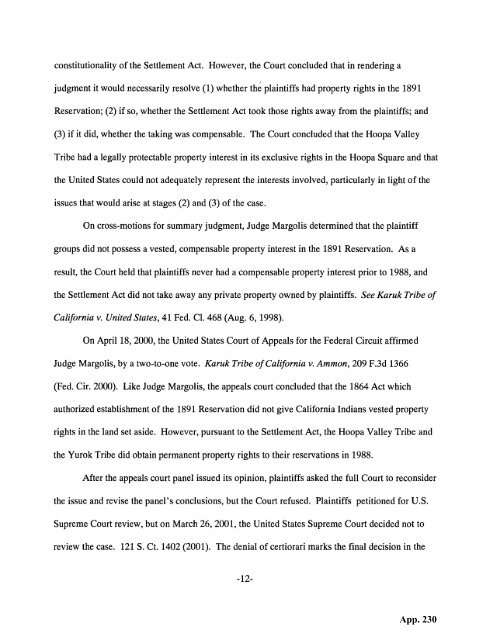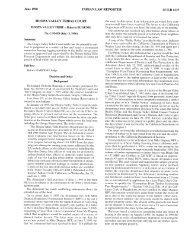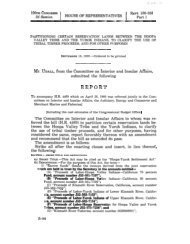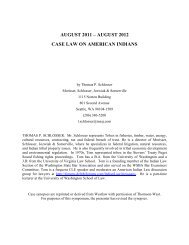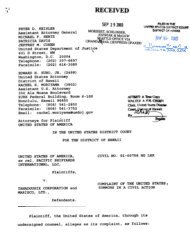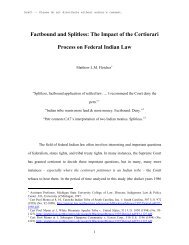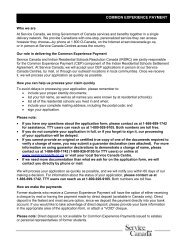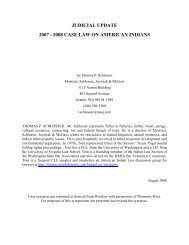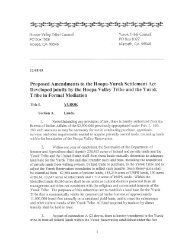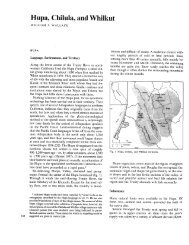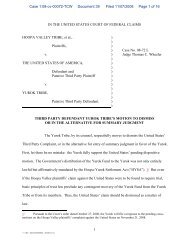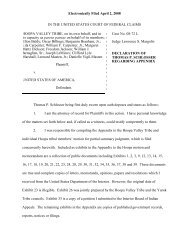Hoopa appendix supporting summary judgment - Schlosser Law Files
Hoopa appendix supporting summary judgment - Schlosser Law Files
Hoopa appendix supporting summary judgment - Schlosser Law Files
You also want an ePaper? Increase the reach of your titles
YUMPU automatically turns print PDFs into web optimized ePapers that Google loves.
constitutionality ofthe Settlement Act. However, the Court concluded that in rendering a<br />
<strong>judgment</strong> it would necessarily resolve (1) whether the plaintiffs had property rights in the 1891<br />
Reservation; (2) if so, whether the Settlement Act took those rights away from the plaintiffs; and<br />
(3) if it did, whether the taking was compensable. The Court concluded that the <strong>Hoopa</strong> Valley<br />
Tribe had a legally protectable property interest in its exclusive rights in the <strong>Hoopa</strong> Square and that<br />
the United States could not adequately represent the interests involved, particularly in light of the<br />
issues that would arise at stages (2) and (3) of the case.<br />
On cross-motions for <strong>summary</strong> <strong>judgment</strong>, Judge Margolis determined that the plaintiff<br />
groups did not possess a vested, compensable property interest in the 1891 Reservation. As a<br />
result, the Court held that plaintiffs never had a compensable property interest prior to 1988, and<br />
the Settlement Act did not take away any private property owned by plaintiffs. See Karuk Tribe of<br />
California v. United States, 41 Fed. Cl. 468 (Aug. 6, 1998).<br />
On April 18, 2000, the United States Court ofAppeals for the Federal Circuit affirmed<br />
Judge Margolis, by a two-to-one vote. Karuk Tribe ofCalifornia v. Ammon, 209 F.3d 1366<br />
(Fed. Cir. 2000). Like Judge Margolis, the appeals court concluded that the 1864 Act which<br />
authorized establishment of the 1891 Reservation did not give California Indians vested property<br />
rights in the land set aside. However, pursuant to the Settlement Act, the <strong>Hoopa</strong> Valley Tribe and<br />
the Yurok Tribe did obtain permanent property rights to their reservations in 1988.<br />
After the appeals court panel issued its opinion, plaintiffs asked the full Court to reconsider<br />
the issue and revise the panel’s conclusions, but the Court refused. Plaintiffs petitioned for U.S.<br />
Supreme Court review, but on March 26, 2001, the United States Supreme Court decided not to<br />
review the case.<br />
121 5. Ct. 1402 (2001). The denial of certiorari marks the final decision in the<br />
-12-


